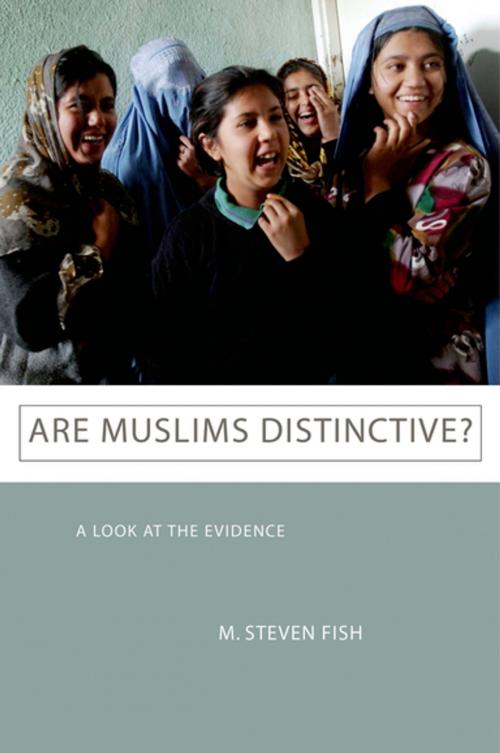Are Muslims Distinctive?
A Look at the Evidence
Nonfiction, Religion & Spirituality, Christianity, Church, Church & State, Middle East Religions, Islam, Social & Cultural Studies, Political Science, International, International Relations| Author: | M. Steven Fish | ISBN: | 9780199792887 |
| Publisher: | Oxford University Press | Publication: | February 9, 2011 |
| Imprint: | Oxford University Press | Language: | English |
| Author: | M. Steven Fish |
| ISBN: | 9780199792887 |
| Publisher: | Oxford University Press |
| Publication: | February 9, 2011 |
| Imprint: | Oxford University Press |
| Language: | English |
Are Muslims Distinctive? represents the first major scientific effort to assess how Muslims and non-Muslims differ--and do not differ--in the contemporary world. Using rigorous methods and data drawn from around the globe, M. Steven Fish reveals that in some areas Muslims and non-Muslims differ less than is commonly imagined. Muslims are not inclined to favor the fusion of religious and political authority or especially prone to mass political violence. Yet there are differences: Gender inequality is more severe among Muslims, Muslims are unusually averse to homosexuality and other controversial behaviors, and democracy is rare in the Muslim world. Other areas of divergence bear the marks of a Muslim advantage: Homicide rates and class-based inequities are less severe among Muslims than non-Muslims. Fish's findings have vital implications for human welfare, interfaith understanding, and international relations.
Are Muslims Distinctive? represents the first major scientific effort to assess how Muslims and non-Muslims differ--and do not differ--in the contemporary world. Using rigorous methods and data drawn from around the globe, M. Steven Fish reveals that in some areas Muslims and non-Muslims differ less than is commonly imagined. Muslims are not inclined to favor the fusion of religious and political authority or especially prone to mass political violence. Yet there are differences: Gender inequality is more severe among Muslims, Muslims are unusually averse to homosexuality and other controversial behaviors, and democracy is rare in the Muslim world. Other areas of divergence bear the marks of a Muslim advantage: Homicide rates and class-based inequities are less severe among Muslims than non-Muslims. Fish's findings have vital implications for human welfare, interfaith understanding, and international relations.















